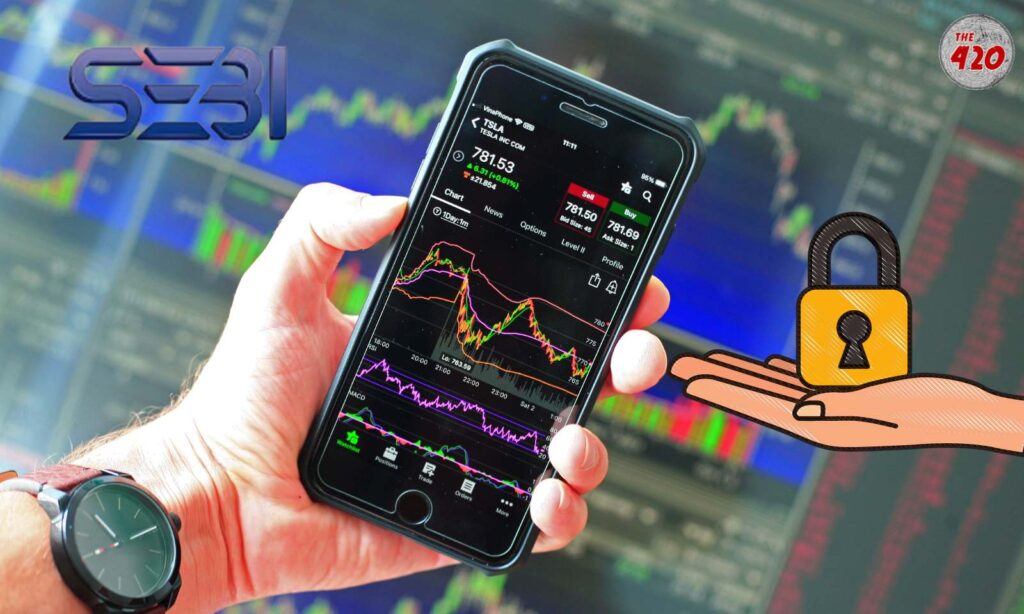Introduction
In 2025 , the Securities and Exchange Board of India (SEBI) will introduce several groundbreaking regulations aimed at bolstering the security of online share trading accounts. These regulations are designed to address growing concerns about cybersecurity and ensure that trading platforms offer a safe environment for investors. This article delves into the specific changes SEBI has implemented, how they impact online trading accounts, and what investors should know to protect themselves in this evolving landscape.
Understanding SEBI’s 2025 Security Enhancements
The primary focus of SEBI’s new regulations is to enhance the security framework surrounding online share trading accounts. With the rise of digital trading platforms, ensuring robust security measures is crucial for protecting investors’ sensitive information and financial assets. Here are the key updates introduced by SEBI:
1. Strengthened Data Encryption Standards
One of the major changes in SEBI’s 2025 regulations is the implementation of enhanced data encryption standards for online share trading accounts. Trading platforms must now use advanced encryption techniques to safeguard users’ personal and financial data from unauthorized access and cyber threats. This includes employing end-to-end encryption for data transmitted between the trading platform and the user’s device, as well as implementing secure storage protocols for sensitive information.
2. Enhanced Authentication Processes
SEBI has mandated stricter authentication processes to access online trading accounts. This includes the use of multi-factor authentication (MFA) for all account logins and transactions. MFA requires users to verify their identity through multiple methods, such as a password combined with a one-time password (OTP) sent to their mobile device or email. This extra security measure helps to block unauthorized access and safeguard against potential breaches.
3. Regular security audits
Under the new regulations, trading platforms are now required to undergo regular security audits conducted by independent cybersecurity firms. These audits evaluate the security framework of the platform, pinpoint weaknesses, and confirm adherence to SEBI’s security regulations. By conducting these audits regularly, SEBI aims to maintain a high level of security and address any potential weaknesses before they can be exploited by malicious actors.
4. Real-time Monitoring and Alerts
SEBI’s updated framework emphasizes the need for real-time monitoring and alert systems on trading platforms. These systems continuously monitor account activities for suspicious behavior and potential security threats. If any unusual activities are detected, such as multiple failed login attempts or large transactions from unfamiliar IP addresses, the system generates alerts to both the user and the platform’s security team. This proactive approach helps in quickly addressing potential security issues and mitigating risks.
5. Mandatory Cybersecurity Training for Staff
To further enhance security, SEBI has introduced regulations requiring trading platforms to provide mandatory cybersecurity training for their staff. This training includes best practices for handling sensitive information, recognizing phishing attempts, and responding to security incidents. By equipping employees with the knowledge and skills to manage security risks effectively, SEBI aims to create a more secure trading environment.
6. Improved Incident Response Protocols
SEBI has also updated the incident response protocols for online share trading accounts. In the event of a security breach or cyberattack, trading platforms must have a well-defined incident response plan in place. This plan includes steps for containing the breach, notifying affected users, and taking corrective actions to prevent future incidents. The updated protocols ensure that platforms can respond swiftly and effectively to any security incidents, minimizing the impact on users.
The Impact on Online Share Trading Accounts
These regulatory changes have a significant impact on online share trading accounts. By implementing enhanced security measures, SEBI is providing investors with greater confidence in the safety of their trading activities. The improved encryption standards, authentication processes, and real-time monitoring systems help protect against cyber threats and ensure that users’ personal and financial information remains secure.
For investors, these updates mean that online trading platforms are now held to higher security standards. It is essential for users to be aware of these changes and choose platforms that comply with SEBI’s regulations. Additionally, investors should remain vigilant and follow best practices for online security, such as using strong passwords and enabling MFA.
Conclusion
SEBI’s 2025 regulations represent a crucial step forward in enhancing the security of online share trading accounts. By introducing robust security measures and updating existing protocols, SEBI is ensuring that trading platforms offer a safer environment for investors. For beginners looking to get started in the world of stock trading, choosing the best trading platform in India for beginners that adheres to SEBI’s new security standards is essential. This will not only provide a secure trading experience but also equip them with the tools needed to navigate the financial markets confidently and effectively.
